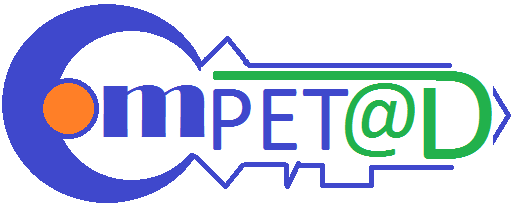Not even a 5.6 magnitude earthquake in the afternoon of the 8th of April was strong enough to shatter the participants’ enthusiasm and eagerness to learn as the Philippines HR Group (PHRG) held its most recent and largest public event at the Philippine Bible Society in UN Avenue, Ermita, Manila. This is the second run of 1st Quarter’s topic, “Strategies on Prominent Labor and Employee Relations Issues for 2017”. The learning session was attended by 314 participants from all over the Philippines, with some as far as Negros. COMPETAD again participated in the volunteering advocacy as a minor sponsor, with its Managing Director, Mr. Philip Nucleus Sia I, being the master of ceremonies. Our Lead Sales and Marketing Officer was also a member of the event coordination team and ushering committee.
The event started with some fun and games to warm up the early participants then was opened by the Philippines HR Group founder, Mr. Darwin Rivers. After sharing a little history of the organization, his message was about the passion and volunteerism of the team that has put together the event. He emphasized that the volunteers have organized it to truly give back to the community. He also invited the participants to attend the upcoming learning events in June and the PHRG Summit in November 2017.

Mr. Neil Ryan Lumacad, PHRG Core Group Member, giving a prize to a winner of the Early Bird Activities. Our Managing Director at COMPETAD, Mr. Philip Nucleus Sia I, behind them as master of ceremonies.
The first speaker of the day was the Regional Director for the Department of Labor and Employment for NCR, Atty. Johnson Canete. He spoke about the 10 new provisions of the DO174 and how it impacts the HR community. He also talked about a few cases to help everyone understand the prohibition on “Labor-Only Contracting.” This way, HR professionals will know how they can help their companies become compliant. He emphasized that non-compliance to many issues such as not paying the minimum wage requirements, not paying overtime, and other such simple regulations have always plagued the DOLE with complaints from the labor sector and he urged everyone to make a difference. Atty. Johnson has set the bar high for the event has he spoke with passion, humor, and enthusiasm that emanated and connected to the crowd.
Atty. Pol Sanggalang was second to take the stage and shared that the right mindset an HR personnel should have when disciplining employees is their good faith. He elaborated that disciplining shouldn’t be punitive, rather a means of achieving good employee relations, adequate compensation and benefits, good leadership, and supportive training programs. He said that disciplining must be embedded in the company’s policies and must be coherent with an employee’s constitutional rights. For habitual offenders he suggests that documentations of progressive discipline and evidence are a must to ensure that no rights will be violated. His session was a truly valuable and informative segment in the event.
In the afternoon, Mr. Allan Cañete, also a member of the Philippines HR Group, gave a heart-felt but entertainingly witty presentation about how companies can proactively create harmony by adopting an employee-centric culture. He highlighted that the existence of unions indicate a potential dysfunction in the corporation as its need usually arises when employees’ woes are not heard by the management. While he does not discourage the creation of unions, he offered an alternative mindset which he calls POGI (Power of Gratitude Intelligence). He said that by having a positive mindset and actively encouraging a “thanking” attitude in everyone, we can have physiological and sociological benefits both for the individual and the company that will increase the likelihood of a cooperative relationship between employee and management.
Mr. Jaime “Ka James” Estrada ended the day by sharing his experience from his four-decade long journey as an HR professional. He has shared some of his challenges and the ways that he overcame such labor relations issues in the practice of his Human Resource career. He ended his presentation with a touching video clip showing photos of his experience, which gave a melancholic throw-back feel to everyone. It was awe-inspiring.

The audience during the Philippines HR Group Learning Session on Strategies on Prominent Labor and Employee Related Issues in 2017 (April 8, 2017)
Aside from the new knowledge and ideas, the participants of the event also went away with some prizes and freebies from the event’s sponsors that included mugs, umbrellas, a book on Performance Appraisals, and Free Passes to future learning events. The event also encouraged participants to take snapshots with these three official hashtags:
#PhilippinesHRGroup, #PHRGLearningSessions, #PhilippinesHRGroupEvents
Winners will be drawn after the event and shall be posted at the Philippines HR Group Facebook Page. This has truly been a great success for the Phillippines HR Group and a milestone of great magnitude and proportions.










